Dedicated Sessions
Dedicated Sessions are organised as part of the Technical Programme, adding to its depth and variety.
Submissions for the Dedicated Sessions are open to invited speakers only.
In this dedicated session, we will delve into the opportunities and challenges of onshore carbon sequestration. We invite regulators and operators from both sides of the Atlantic to share their insights and experiences on various aspects such as economics, access, characterization, monitoring, safety, health, and environment (SHE), and public engagement. With the annual meeting taking place in Toulouse, we intend to allocate some presentation slots to Lacq, which was previously a storage pilot and is now part of a research center. To address potentially contentious issues, we propose concluding the session with a panel discussion to foster exchange and participation.
Convenor:
- Matthias Imhof (ExxonMobil)
- Audrey Ougier-Simonin (BGS)
- Francesca Oggioni (Viridien)
Hosted by the EAGE Technical Community on CCS

This dedicated session would focus on the most recent exploration well results between 2018-2023, drilled in Norway and the UK. The focus would be on high-impact and/or play-opener and potential new petroleum-system opener wells drilled. The dedicated session will feature keynote speeches from NPD, UK NSTA and Westwood; the presentations will emphasize on the pre-drill concepts and main risks and the post-drill results.
Technical Community: Basin and Petroleum Systems Analysis
Convenor:
- Balazs Badics (Wintershall Dea)
- Alyson Harding (Westwood Energy)
- Jorge Sanchez Borque (Norwegian Offshore Directorate)

Modeling and predicting reservoir characteristics and properties requires solid quantitative analytical data pertaining to reservoir composition as well as to processes responsible for its present and past status. Efforts in developing analytical techniques permitting precise quantification of critical parameters, such as mineralogy, porosity-permeability, fluid nature, age dating, net/gross and fractures, among other things, must be driven by the need for a more accurate and more quantitative understanding of geological reservoirs, holding direct implications in exploration/production of resources (HC’s, EOR, He, H2, geothermal, critical metals, etc…) and in underground geological storage (CO2, H2, etc…).
This session aims at reviewing some recent advances in quantitative analysis of geological materials and processes relevant to subsurface reservoirs. It will propose contributions dealing with new innovative developments in instrumental and methodological approaches, including deep learning and AI tools, which provide a unique access to critical quantitative data.
Convenor:
- Jean-Pierre Girard (TotalEnergies (TPA))
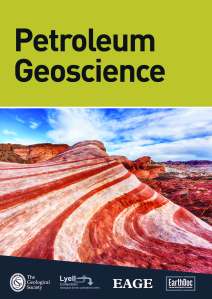
This session comprises some of the best papers published recently in Petroleum Geoscience.
Petroleum Geoscience provides a multidisciplinary outlet for the publication needs of those involved in the science and technology of the rock-related subsurface disciplines. Published by EAGE and the Geological Society, the journal aims to share knowledge of reservoir geoscience and to reflect the international nature of its development.
Convenor:
- Jonathan Redfern (University of Manchester)

The number of CCS projects has seen a significant growth over the past decade, from 22 CCS projects either operational or under construction in 2014 to 50 operational facilities and 44 under construction in 2024. Additionally, the number of projects in various stages of development has rocketed over 6000. This growth reflects increased global interest and investment in CCS technology, targeting either depleted gas reservoirs or large saline aquifers. This surge has lead to the concern of the interferences between projects targeting the same aquifers, be it for CO2 storage or other purposes such as geothermy.
Recently, several initiatives have been launched by to reflect on the subject, often initiated by regulatory entities, in UK and Denmark for instance. In most concerned countries, there is no technical nor legal framing on how to manage or avoid interferences. Such interferences could lead to storage resource competition, public money squandering or even storage failure due to excessive stress applied to containing formations. This panel ambitions to describe the problem through different angles through the review of interference studies and the collection of multiple points of view from the various stakeholders involved: operators, regulators, academics. The main question they will be asked is: how can we optimize the safe exploitation of saline aquifers for reducing carbon emissions and combating climate change ?
Convenors:
- Francois Millancourt (TotalEnergies)
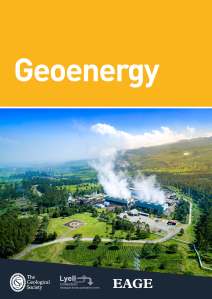
This session will showcase a range of papers published in Geoenergy’s inaugural year. Geoenergy is devoted to the publication of non-hydrocarbon energy geoscience and engineering research critical for this new era of sustainable energy. Published by EAGE and the Geological Society, the journal offers a venue to present new innovative technologies and methodologies, as well as the redeployment of knowledge built up over decades of oil and gas exploration.
Convenors:
- Jonathan Redfern (University of Manchester)
- Sebastian Geiger (Delft University of Technology)

For nearly half a century, basin modeling has helped to provide a framework for our understanding of the geological systems that control the formation and occurrence of subsurface energy resources. Petroleum systems have been the dominant study area, but energy transition resources including critical minerals, geothermal and natural hydrogen are generating an increasing level of interest. This Dedicated Session is the 3 rd in a successful series held at the EAGE Annual conferences in Vienna (2023) and Oslo (2024), and now being offered at the Toulouse (2025) conference.
The session will gather subsurface systems modeling practitioners and geoscientists interested in the role and value of geological process simulators. It will enable new technical developments and scalable applications of static and dynamic geological process modeling to be showcased. Scalable indicates the ability to initiate analyses on a basin scale, and to then enable analyses to be performed on a local or prospect scale.
Topics will include:
- Utilizing and adapting existing basin and reservoir modeling simulators, for example for – geothermal exploration and production
- Developments of new scalable solutions for exploration- and production-scale mineral, geothermal and natural hydrogen systems analysis
- Modeling for exploration risk and resource assessments
- Process modeling strategies and case studies
The session will conclude with an interdisciplinary discussion of experts and stakeholders on developments and the way forward for process modeling for minerals, geothermal and natural hydrogen.
Convenors:
- Bjorn Wygrala (Consultant)
- Thomas Hantschel (TERRANTA)
Hosted by the EAGE Technical Community on Basin and Petroleum Systems Analysis
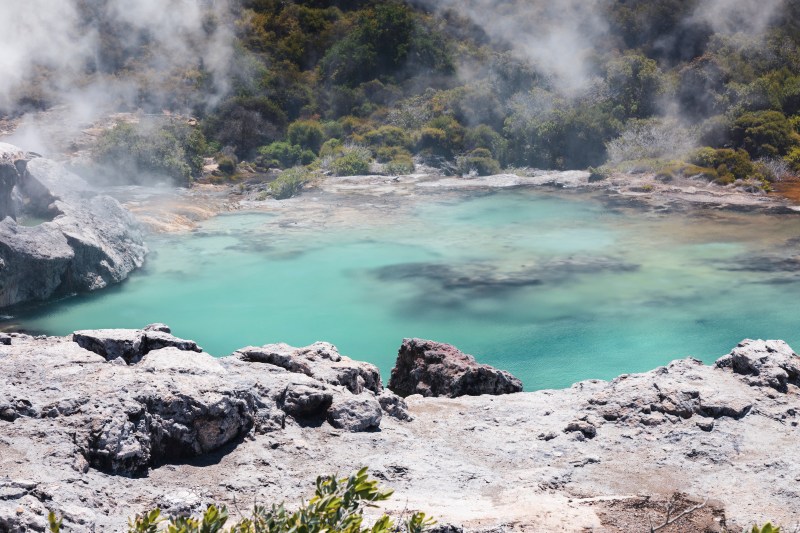
Heating and cooling demands almost 50% of the EU’s total gross energy consumption. A large portion of this energy can be delivered by direct heat from geothermal resources. In this session, we discuss how numerical modeling and data assimilation can help in improving the energy production from direct heat systems.
Convenors:
- Denis Voskov (Delft University of Technology)
- Øystein Klemetsdal (SINTEF)

This session explores deep-seated mineral deposits, both terrestrial (hundreds of meters beneath the Earth’s surface) and marine (hundreds of meters below sea level). It focuses on advanced geophysical, geological, and geochemical methods to address the technical and economic challenges of exploring these critical yet hard-to-access resources.
Convenors:
- Anna Lim (Argeo)
- Gaud Pouliquen (Bell Geospace)
Hosted by the EAGE Technical Community on Critical Minerals

Beyond the minimisation of uncertainties, improving the quality of reservoir models is a threefold quest for: i) a correct, predictive and validated representation of geological heterogeneity, in line with Popper’s and Bayes’ principles; ii) computational performance to enable multiple scenarios to be run; iii) robustness, by making the best possible use of available data. This session will review the latest advances in this field: Forward modelling, AI, Multiphysics inversion, Bayesian approaches, etc.
Convenors:
- Charles Danquigny (Avignon University & TotalEnergies)
- Professor Cédric John (Queen Mary University of London)
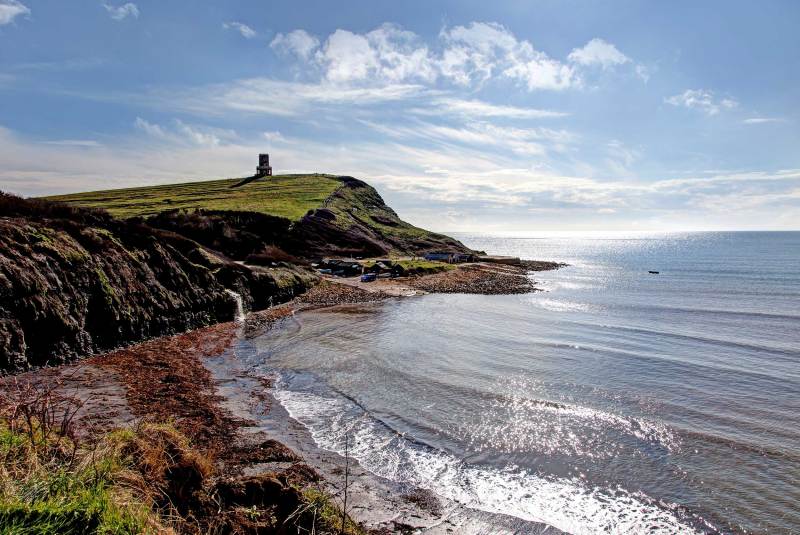
The session explores hybrid solutions combining geothermal energy with Carbon Capture and Storage (CCS) to optimize geological resources, enhance energy production, and reduce emissions. It invites stakeholders to engage and submit projects demonstrating these technologies for the energy transition.
Convenors:
- Christophe Kervévan (BRGM (France))
- Cornelia Schmidt-Hattenberger (GFZ Potsdam (Germany))
- Ilkay Eker (ExxonMobil (USA))
- Audrey Ougier-Simonin (British Geological Survey)
- Matthias Imhof (ExxonMobil)
- Sonia Lopez Kovacs (Repsol)
- Valentin Guillon, (IFPEN)
- Runhai Feng (Aramco Asia)
Co-organized by the EAGE Technical Community on CCS

The Energy Transition poses new challenges to the way we utilize the subsurface for
the exploration, exploitation and storage of new forms of energy that have a highly
reduced or zero carbon footprint. One of the most important and widely discussed new potential energy resources is Natural Hydrogen, also described as White or Geologic Hydrogen.
Petroleum systems and their essential geologic elements and processes can be used as a close analogue for Hydrogen Systems and the geologic controls on natural hydrogen generation, migration, accumulation and loss. Excellent new papers on the ‘proof-of-concept’ field for the occurrence of natural hydrogen accumulations, the Bourakebougou field in Mali have recently been published, as well as other studies relevant to natural hydrogen generation and migration, so all of the elements and processes of Hydrogen Systems can now be investigated with more confidence. Initial assessments of the potential for natural hydrogen are under way in many countries and drilling activities are being initiated, so this new information will be timely.
The session will gather basin modeling practitioners and geoscientists interested in
the role of large-scale geological processes as they affect subsurface components of Hydrogen Systems. It will enable the latest technical developments and scalable
applications of geological process modeling to be showcased. A list of high-profile speakers will be presenting the following topics:
- Hydrogen sourcing and generation processes
- Hydrogen migration and accumulation controls
- Hydrogen systems modeling
- Hydrogen exploration strategies
Technical Community: Basin and Petroleum Systems Analysis
Convenors:
- Thomas Hantschel (Terranta)
- Johannes Wendebourg (TotalEnergies)
- Bjorn Wygrala (Consultant)

Oil and gas will make up some portion of the energy mix for the foreseeable future, this session would explore how companies are employing enhanced oil recovery techniques during the energy transition. How this changed in the past ten years? Is there still an appetite to advance these technologies?
Convenors:
- Alan Beteta (Heriot Watt University)
- Yohaney Gomez (Geoling Energy)
- Eric Delamaide (IFP)
Hosted by the EAGE Technical Community on Enhancing Hydrocarbon Recovery for Sustainability

Today, the North Sea is a hot spot of CCS activity with projects being pursued in multiple countries and projects spanning the states of scoping, appraisal, development, and operation. Offshore, CCS faces different challenges than onshore. We bring together operators, service providers, regulators, and researchers to share case studies on challenges, opportunities, and learnings; especially with respect to characterization, MMV, and SHE.
Technical Community: Decarbonization and Energy Transition
Convenors:
- Matthias Imhof (ExxonMobil)
- Audrey Ougier-Simonin (BGS)

Convenors:
- Mohammad Nooraiepour (University of Oslo)
- Mohammad Masoudi (SINTEF)
- Sylvain Thibeau (TotalEnergies)
Hosted by the EAGE-EAG Technical Community on Geochemistry
We need to insert geosciences in sustainability strategies for society at large, government plans and the corporate world. Geoscientists are critical for the UN 17 SDGs. This session will analyze how geoscientists can expand their collaboration pathways with educators and academia to ensure geosciences remain appealing for new generations.
Technical Community: Decarbonization and Energy Transition
Convenors:
- Maria Angela Capello (Red TRee Consulting LLC )
- Emer Caslin (iCRAG)
This session focuses on challenges of repurposing oil and gas wells into geothermal ones. Potential issues, such as structural well integrity, changing pressures, chemical incompatibilities, contamination, proper sealing, and heat transfer efficiency would be addressed. Adapting existing wells for new uses necessitates novel ideas which we look forward to see.
Convenors:
- Adeline Parent (SLB)
- Jeanne Vidal (Lithium de France)
- Sonia Lopez Kovacs (Repsol)
- Valerie Barres-Montel (GeoWise)
- Polly Tandy (MWEM Services Ltd)
Hosted by the EAGE Technical Community on Geothermal Energy

Several decarbonisation pathways will play a significant role in bringing the European and global economy towards the net-zero ambition by 2050. Carbon Capture and Storage is consistently highlighted as a key decarbonisation pathway to reduce emissions and enable negative emissions. This session invites abstracts analysing different aspects of CCS deployment from power, industry, hydrogen, offshore oil and gas, ships, bioenergy, direct air capture. Topics can include geologic potential assessment, integrated assessment modelling, life-cycle assessment, and cost-benefit analysis.
Convenors:
- Stefania Gardarsdottir (SINTEF Energy Research)
- Simon Roussanaly (SINTEF Energy Research)
- Vikram Vishal (IIT Bombay)

Lithium with its low density, high specific capacity and low standard electrode potential is a key element for energy storage and thus the energy transition. Conventional lithium production is related to mining of pegmatites or clay minerals as well as the extraction of lithiumcarbonate from evaporites. Unconventional approaches like direct lithium extraction (DLE) of lithium from subsurface brines promise less use of land, a lower CO2-footprint and lower water consumption. Thus, the exploration of more sustainable resources is needed as well as the development of more efficient technologies to produce high purity lithium products. This session will bring experts from academia and major energy operators to discuss future business and R&D perspectives for the exploration & production of unconventional lithium. This dedicated session is designed for Geoscientists, Process Engineers, Data Scientists, Raw Materials Market Analysts, Supply Chain Analysts.
We are honored and proud to welcome:
Convenor:
Johannes Böcker (Neptune Energy)
Axel A.O. Wenke (Neptune Energy)
Antonin Richard (Uni de Lorraine)
Romain Millot (Lithium de France)
Christina Schmidt (Vulcan Energy)
Christopher Doornbos (E3 Lithium)
Jonathan Espinola (Uni São Paulo)
Frank Despinois (Total Energies)

To fully address the changing needs, the industry is continuously developing novel approaches to monitoring. Advances are made in instrumentation such as fibre-sensing, nodes, and shallow seismic. Furthermore, modern monitoring requires a cross-disciplinary view of the available data. This is aided by AI/ML methods in, e.g., cloud-computing, data archive homogenisation, and processing. This session will highlight technological progress, case studies, and encourage discussions on where more progress is needed.
Convenor:
- Andreas Wuestefeld (NORSAR)
- Jon Even Lindgård (Reach Subsea)

This session will showcase a selection of papers published recently in Geoenergy and Petroleum Geoscience. Both journals are published by EAGE and the Geological Society. Geoenergy is devoted to the publication of non-hydrocarbon energy geoscience and engineering research critical for this new era of sustainable energy. Petroleum Geoscience offers a venue to present new innovative technologies and methodologies, as well as the redeployment of knowledge built up over decades of oil and gas exploration.
Convenors:
- Sebastian Geiger, (TU Delft)
- Jonathan Redfern (University of Manchester)
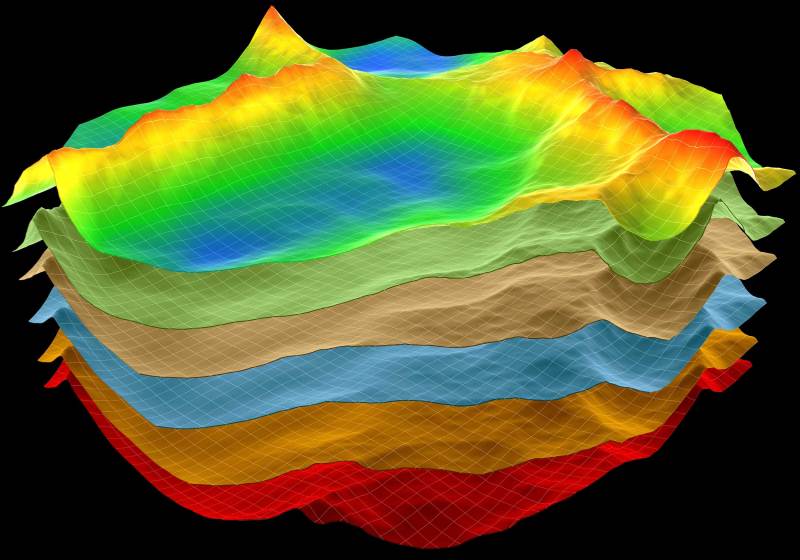
Basin modeling provides a framework for our knowledge of a basin and petroleum systems that control the formation and occurrence of oil and gas. It is applied equally to conventional and unconventional resources.
The play concept is based on our understanding of the elements and processes of a petroleum system where plays share similar geological elements and properties. These include source, migration pathways, entrapment and timing. A new play requires a specific combination of petroleum systems elements and processes that had not been identified yet and that can result in successful exploration. New plays can be derived either from new petroleum system elements in mature and emerging basins, or from analogue petroleum system elements applied to frontier basins.
New plays require new ideas that can be tested with basin modeling which helps to understand the interplay between certain petroleum systems elements, in particular source presence and type, maturity, timing and charge. Derisking of new plays is done by acquisition, analysis and interpretation of additional data that are used to constrain model input. This can be challenging as models require knowledge of source systems that are poorly known and of charge systems that are poorly imaged. The goal of this session is to present case studies in which the value of basin modeling in opening new plays can be demonstrated.
Convenor:
- Johannes Wendebourg (TotalEnergies)
- Bjorn Wygrala (Consultant)
Hosted by the EAGE Technical Community on Basin and Petroleum Systems Analysis

How can satellite images can provide information required to support the key questions in delivering a low carbon future? Societies want to know where low carbon energy resources can be found and developed and verify the energy production is compliant with regulations. Presentations on geohazard mapping, monitoring, and/or risk assessment would be welcomed.
Convenor:
- Richard Hall (Equinor)

To adhere to the Paris Agreement, there is an increasing need for large-scale or fully integrated carbon capture and storage within the industrial value chain. New solutions are emerging in the field of carbonate mineralization:
In-situ mineralization involves injecting CO2 and water directly into geological formations where it reacts with silicates rich in metallic cations. This method provides the benefit of secure storage by converting the carbon into minerals, reducing the need for long-term monitoring.
Ex-situ mineralization involves reactions between CO2, water, and minerals (such as mine tailings, fly ash, and kiln dust) in surface facilities. The resulting minerals can be reintroduced into the economic chain as raw material.
Both technologies depend on understanding the acid/base reactions between CO2-rich acidic fluids and a base. While the process is well understood, scaling it up industrially has yet to be demonstrated. This session aims to bridge disciplines (geoscientists, chemists, biogeochemists, physicists, business analysts) to present the latest research and future directions for scaled-up applications.
Convenor:
- Pierre-Alexandre Teboul (TotalEnergies)
- Sylvain Calassou (TotalEnergies)
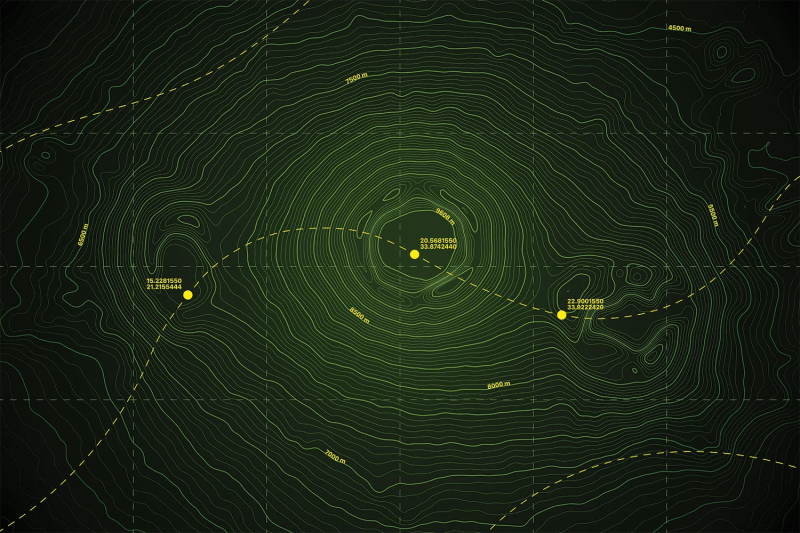
Data from different subdisciplines of geological engineering too often remains siloed in different teams, preventing organizations from benefiting from their full combined value. This session explores recent innovations in machine learning, automation, visualization and building information management (BIM) that have led to valuable insights and improved communication in civil, geotechnical, environmental, and tunnel engineering projects.
Convenor:
- Craig Christensen (Emerald Geomodelling)
- Bahman Bohloli (NGI)

Carbonates host some of the most prolific geothermal reservoirs in Europe and are currently target of numerous exploration projects. An in-depth reservoir characterization is key to ensure exploration success and long-term sustainable production. This dedicated session invites submissions, focusing on carbonate reservoirs and cross-over potential from the oil&gas industry.
Convenor:
- Gerd Winterleitner (Fraunhofer IEG)
- Sjoukje de Vries (EBN)
Hosted by the EAGE Technical Community on Geothermal Energy

Explore the instrumental role of geoscientists in ensuring a sustainable supply of vital minerals and REEs for the evolving energy landscape. We’ll examine versatile geoscience proficiencies, environmental complexities, and the indispensability of battery-critical minerals and rare earth elements in forging a green energy future. This could include the need for critical minerals and a geoscientists role, transferrable Geoscience skills for the Energy Transition, Environmental and geo-political issues surrounding critical minerals and the “green” transition, Battery-critical minerals, Rare earth elements, and Onshore and offshore exploration.
Convenors:
- Kirsty Lewis (Equinor)
- Swapan Sahoo (Equinor)

In this session, we will focus on assessing the uncertainties in AI/ML-derived seismic products, such as seismic elastic and reservoir properties. Our discussion will cover the evaluation of these uncertainties, the workflows for deriving these properties, and the sensitivity to the trained models. We will also explore methods for quality control (QC), validation, and relevance assessment of these models and results. Additionally, we will aim at addressing or understanding the confidence level we can have in these workflows, which are often perceived as “black boxes.”
Convenor:
- Balazs Badics (Wintershall Dea)
- Anastasiia Jacobsen (Bluware)
- Anita Torabi
- Brian Eslick (TotalEnergies)
- Cyrille Reiser (Sharp Reflections)
- James Lowell (Geoteric)
- Victor Aarre (Firda Geo)
Hosted by the EAGE Technical Community on Seismic Interpretation

This session examines France’s geothermal roadmap, highlighting its role in achieving 2030-2050 decarbonization goals. Key topics include subsurface knowledge, lithium production, risk management (seismicity), innovations, and successful project outcomes. Geothermal is positioned as a crucial solution for local energy investments and decarbonization, both within France and across cross-border regions.
Convenor:
- Muriel Thibaut (Ministère de l’Enseignement Supérieur et de la Recherche)
- Albert Genter (ES Géothermie),
- Valérie Barrès-Montel (TotalEnergies / GeoWise)
Co-organized by the EAGE Technical Community on Geothermal Energy

Explore the instrumental role of geoscientists in ensuring a sustainable supply of vital minerals and REEs for the evolving energy landscape. We’ll examine versatile geoscience proficiencies, environmental complexities, and the indispensability of battery-critical minerals and rare earth elements in forging a green energy future. This could include the need for critical minerals and a geoscientists role, transferrable Geoscience skills for the Energy Transition, Environmental and geo-political issues surrounding critical minerals and the “green” transition, Battery-critical minerals, Rare earth elements, and Onshore and offshore exploration.
Convenors:
- Kirsty Lewis (Equinor)
- Swapan Sahoo (Equinor)

This session aims to tackle the importance of 100 years of Petroleum E&P data acquisition for an extensive knowledge and revisit of the french sedimentary basins in the frame of the Energy transition. During these 100 years concepts were gradually brought through interpretations of subsurface data and have allowed to improve the knowledge of the petroleum plays and to develop additional topics such as paleogeographical maps, palinspathic reconstructions and hydrogeological behaviours of reservoirs. Related consequences will be detailed on geothermal and hydrogeological industry development as well as possible utilization of depleted existing oil and gas fields for carbon capture and sequestration. The petroleum systems of basins such as the Aquitaine, Paris and Alsace petroleum provinces will be described as the main case studies and then the possible CCS and geothermal projects realized or under investigation. Due to the relative number of topics and papers this oral session may be developed over a full day.
Convenor:
- Dr Jean-Jacques Biteau (Retired from TotalEnergies, EAGE 2017-2019 President)
Hosted by the EAGE Technical Community on Basin and Petroleum Systems Analysis

Explore the instrumental role of geoscientists in ensuring a sustainable supply of vital minerals and REEs for the evolving energy landscape. We’ll examine versatile geoscience proficiencies, environmental complexities, and the indispensability of battery-critical minerals and rare earth elements in forging a green energy future. This could include the need for critical minerals and a geoscientists role, transferrable Geoscience skills for the Energy Transition, Environmental and geo-political issues surrounding critical minerals and the “green” transition, Battery-critical minerals, Rare earth elements, and Onshore and offshore exploration.
Convenors:
- Kirsty Lewis (Equinor)
- Swapan Sahoo (Equinor)

Join us for an exciting session that dives deep into the challenges of site characterization and risk mitigation in offshore wind. This event brings together a dynamic mix of stakeholders, including contractors, developers and consenting authorities for interactive discussions and expert presentations. We will explore the geoscience and engineering hurdles of offshore windfarm development across diverse regions, each presenting unique engineering and environmental challenges. Key topics include cutting edge geophysical and geotechnical techniques for site and cable route characterization, innovative foundation design, advanced installation methods and best practice for decommissioning.
Convenor:
- Lennart Siemann (EAGE LC GERMANY/Fraunhofer IWES)
- Ammar Ghanim (EAGE LC GERMANY/Fraunhofer ITWM)
- Wiebke Athmer (EAGE LC GERMANY/SLB)
- Jan-Philipp Schmoldt (EAGE LC Germany / Schmoldt Consult)
Hosted by EAGE Local Chapter Germany

Explore the instrumental role of geoscientists in ensuring a sustainable supply of vital minerals and REEs for the evolving energy landscape. We’ll examine versatile geoscience proficiencies, environmental complexities, and the indispensability of battery-critical minerals and rare earth elements in forging a green energy future. This could include the need for critical minerals and a geoscientists role, transferrable Geoscience skills for the Energy Transition, Environmental and geo-political issues surrounding critical minerals and the “green” transition, Battery-critical minerals, Rare earth elements, and Onshore and offshore exploration.
Convenors:
- Kirsty Lewis (Equinor)
- Swapan Sahoo (Equinor)

Dedicated Sessions
Dedicated Sessions are organised as part of the Technical Programme, adding to its depth and variety.
Submissions for the Dedicated Sessions are open to invited speakers only.
The Call for Abstracts for the Dedicated Sessions is closed.
In this dedicated session, we will delve into the opportunities and challenges of onshore carbon sequestration. We invite regulators and operators from both sides of the Atlantic to share their insights and experiences on various aspects such as economics, access, characterization, monitoring, safety, health, and environment (SHE), and public engagement. With the annual meeting taking place in Toulouse, we intend to allocate some presentation slots to Lacq, which was previously a storage pilot and is now part of a research center. To address potentially contentious issues, we propose concluding the session with a panel discussion to foster exchange and participation.
Convenor:
- Matthias Imhof (ExxonMobil)
- Audrey Ougier-Simonin (BGS)
- Francesca Oggioni (Viridien)
Hosted by the EAGE Technical Community on CCS

This dedicated session would focus on the most recent exploration well results between 2018-2023, drilled in Norway and the UK. The focus would be on high-impact and/or play-opener and potential new petroleum-system opener wells drilled. The dedicated session will feature keynote speeches from NPD, UK NSTA and Westwood; the presentations will emphasize on the pre-drill concepts and main risks and the post-drill results.
Technical Community: Basin and Petroleum Systems Analysis
Convenor:
- Balazs Badics (Wintershall Dea)
- Alyson Harding (Westwood Energy)
- Jorge Sanchez Borque (Norwegian Offshore Directorate)

Modeling and predicting reservoir characteristics and properties requires solid quantitative analytical data pertaining to reservoir composition as well as to processes responsible for its present and past status. Efforts in developing analytical techniques permitting precise quantification of critical parameters, such as mineralogy, porosity-permeability, fluid nature, age dating, net/gross and fractures, among other things, must be driven by the need for a more accurate and more quantitative understanding of geological reservoirs, holding direct implications in exploration/production of resources (HC’s, EOR, He, H2, geothermal, critical metals, etc…) and in underground geological storage (CO2, H2, etc…).
This session aims at reviewing some recent advances in quantitative analysis of geological materials and processes relevant to subsurface reservoirs. It will propose contributions dealing with new innovative developments in instrumental and methodological approaches, including deep learning and AI tools, which provide a unique access to critical quantitative data.
Convenor:
- Jean-Pierre Girard (TotalEnergies (TPA))

This session comprises some of the best papers published recently in Petroleum Geoscience.
Petroleum Geoscience provides a multidisciplinary outlet for the publication needs of those involved in the science and technology of the rock-related subsurface disciplines. Published by EAGE and the Geological Society, the journal aims to share knowledge of reservoir geoscience and to reflect the international nature of its development.
Convenor:
- Jonathan Redfern (University of Manchester)

The number of CCS projects has seen a significant growth over the past decade, from 22 CCS projects either operational or under construction in 2014 to 50 operational facilities and 44 under construction in 2024. Additionally, the number of projects in various stages of development has rocketed over 6000. This growth reflects increased global interest and investment in CCS technology, targeting either depleted gas reservoirs or large saline aquifers. This surge has lead to the concern of the interferences between projects targeting the same aquifers, be it for CO2 storage or other purposes such as geothermy.
Recently, several initiatives have been launched by to reflect on the subject, often initiated by regulatory entities, in UK and Denmark for instance. In most concerned countries, there is no technical nor legal framing on how to manage or avoid interferences. Such interferences could lead to storage resource competition, public money squandering or even storage failure due to excessive stress applied to containing formations. This panel ambitions to describe the problem through different angles through the review of interference studies and the collection of multiple points of view from the various stakeholders involved: operators, regulators, academics. The main question they will be asked is: how can we optimize the safe exploitation of saline aquifers for reducing carbon emissions and combating climate change ?
Convenors:
- Francois Millancourt (TotalEnergies)

This session will showcase a range of papers published in Geoenergy’s inaugural year. Geoenergy is devoted to the publication of non-hydrocarbon energy geoscience and engineering research critical for this new era of sustainable energy. Published by EAGE and the Geological Society, the journal offers a venue to present new innovative technologies and methodologies, as well as the redeployment of knowledge built up over decades of oil and gas exploration.
Convenors:
- Jonathan Redfern (University of Manchester)
- Sebastian Geiger (Delft University of Technology)

For nearly half a century, basin modeling has helped to provide a framework for our understanding of the geological systems that control the formation and occurrence of subsurface energy resources. Petroleum systems have been the dominant study area, but energy transition resources including critical minerals, geothermal and natural hydrogen are generating an increasing level of interest. This Dedicated Session is the 3 rd in a successful series held at the EAGE Annual conferences in Vienna (2023) and Oslo (2024), and now being offered at the Toulouse (2025) conference.
The session will gather subsurface systems modeling practitioners and geoscientists interested in the role and value of geological process simulators. It will enable new technical developments and scalable applications of static and dynamic geological process modeling to be showcased. Scalable indicates the ability to initiate analyses on a basin scale, and to then enable analyses to be performed on a local or prospect scale.
Topics will include:
- Utilizing and adapting existing basin and reservoir modeling simulators, for example for – geothermal exploration and production
- Developments of new scalable solutions for exploration- and production-scale mineral, geothermal and natural hydrogen systems analysis
- Modeling for exploration risk and resource assessments
- Process modeling strategies and case studies
The session will conclude with an interdisciplinary discussion of experts and stakeholders on developments and the way forward for process modeling for minerals, geothermal and natural hydrogen.
Convenors:
- Bjorn Wygrala (Consultant)
- Thomas Hantschel (TERRANTA)
Hosted by the EAGE Technical Community on Basin and Petroleum Systems Analysis

Heating and cooling demands almost 50% of the EU’s total gross energy consumption. A large portion of this energy can be delivered by direct heat from geothermal resources. In this session, we discuss how numerical modeling and data assimilation can help in improving the energy production from direct heat systems.
Convenors:
- Denis Voskov (Delft University of Technology)
- Øystein Klemetsdal (SINTEF)

This session explores deep-seated mineral deposits, both terrestrial (hundreds of meters beneath the Earth’s surface) and marine (hundreds of meters below sea level). It focuses on advanced geophysical, geological, and geochemical methods to address the technical and economic challenges of exploring these critical yet hard-to-access resources.
Convenors:
- Anna Lim (Argeo)
- Gaud Pouliquen (Bell Geospace)
Hosted by the EAGE Technical Community on Critical Minerals

Beyond the minimisation of uncertainties, improving the quality of reservoir models is a threefold quest for: i) a correct, predictive and validated representation of geological heterogeneity, in line with Popper’s and Bayes’ principles; ii) computational performance to enable multiple scenarios to be run; iii) robustness, by making the best possible use of available data. This session will review the latest advances in this field: Forward modelling, AI, Multiphysics inversion, Bayesian approaches, etc.
Convenors:
- Charles Danquigny (Avignon University & TotalEnergies)
- Professor Cédric John (Queen Mary University of London)

The session explores hybrid solutions combining geothermal energy with Carbon Capture and Storage (CCS) to optimize geological resources, enhance energy production, and reduce emissions. It invites stakeholders to engage and submit projects demonstrating these technologies for the energy transition.
Convenors:
- Christophe Kervévan (BRGM (France))
- Cornelia Schmidt-Hattenberger (GFZ Potsdam (Germany))
- Ilkay Eker (ExxonMobil (USA))
- Audrey Ougier-Simonin (British Geological Survey)
- Matthias Imhof (ExxonMobil)
- Sonia Lopez Kovacs (Repsol)
- Valentin Guillon, (IFPEN)
- Runhai Feng (Aramco Asia)
Co-organized by the EAGE Technical Community on CCS

The Energy Transition poses new challenges to the way we utilize the subsurface for
the exploration, exploitation and storage of new forms of energy that have a highly
reduced or zero carbon footprint. One of the most important and widely discussed new potential energy resources is Natural Hydrogen, also described as White or Geologic Hydrogen.
Petroleum systems and their essential geologic elements and processes can be used as a close analogue for Hydrogen Systems and the geologic controls on natural hydrogen generation, migration, accumulation and loss. Excellent new papers on the ‘proof-of-concept’ field for the occurrence of natural hydrogen accumulations, the Bourakebougou field in Mali have recently been published, as well as other studies relevant to natural hydrogen generation and migration, so all of the elements and processes of Hydrogen Systems can now be investigated with more confidence. Initial assessments of the potential for natural hydrogen are under way in many countries and drilling activities are being initiated, so this new information will be timely.
The session will gather basin modeling practitioners and geoscientists interested in
the role of large-scale geological processes as they affect subsurface components of Hydrogen Systems. It will enable the latest technical developments and scalable
applications of geological process modeling to be showcased. A list of high-profile speakers will be presenting the following topics:
- Hydrogen sourcing and generation processes
- Hydrogen migration and accumulation controls
- Hydrogen systems modeling
- Hydrogen exploration strategies
Technical Community: Basin and Petroleum Systems Analysis
Convenors:
- Thomas Hantschel (Terranta)
- Johannes Wendebourg (TotalEnergies)
- Bjorn Wygrala (Consultant)

Oil and gas will make up some portion of the energy mix for the foreseeable future, this session would explore how companies are employing enhanced oil recovery techniques during the energy transition. How this changed in the past ten years? Is there still an appetite to advance these technologies?
Convenors:
- Alan Beteta (Heriot Watt University)
- Yohaney Gomez (Geoling Energy)
- Eric Delamaide (IFP)
Hosted by the EAGE Technical Community on Enhancing Hydrocarbon Recovery for Sustainability

Today, the North Sea is a hot spot of CCS activity with projects being pursued in multiple countries and projects spanning the states of scoping, appraisal, development, and operation. Offshore, CCS faces different challenges than onshore. We bring together operators, service providers, regulators, and researchers to share case studies on challenges, opportunities, and learnings; especially with respect to characterization, MMV, and SHE.
Technical Community: Decarbonization and Energy Transition
Convenors:
- Matthias Imhof (ExxonMobil)
- Audrey Ougier-Simonin (BGS)

Energy transition is characterized by surface and subsurface access and usage patterns than can cause conflicts when using traditional characterization and monitoring methods. Examples of different activities include CCS, wind, solar, geothermal, hydrogen extraction and storage, and biomass farming. To collocate multiple activities, we need to reduce their footprints and impacts to, e.g., perform MMV for CCS below a wind farm. Moreover, ideally there a synergy between the different operations. In this session, we share aspirations and experiences of collocated projects and how novel geophysical practices can leverage the different activities or at least minimize their interference to broaden the value chain and site usage.
Convenor:
- Valérie Barrès-Montel (TotalEnergies / GeoWise)
- Audrey Ougier-Simonin (British Geological Survey)
- Matthias Imhof (Exxon Mobil)
- Elodie Morgan (SpotLight)
- Estelle Rebel (Total Energies)
Co-organized by the EAGE Technical Community on CCS
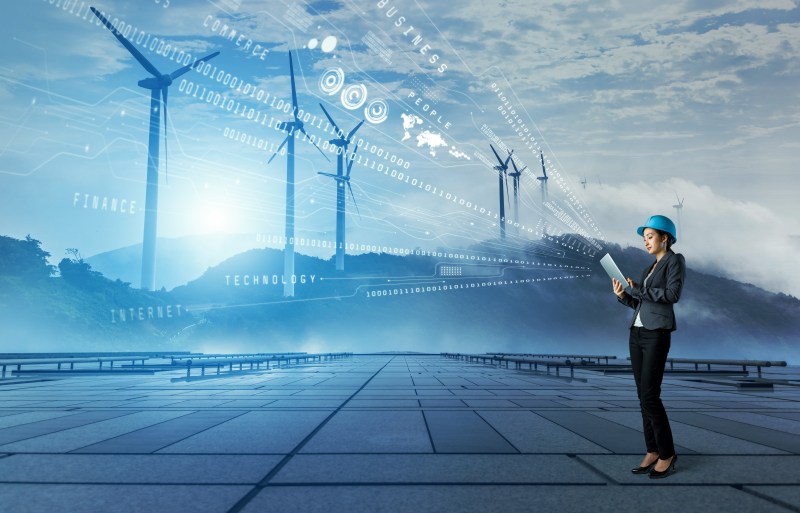
How can existing knowledge, expertise, software, and data be harnessed to fast-track and de-risk methods and workflows for the Energy Transition?
This dedicated session aims to bring together geoscientists and engineers interested in learning and sharing experience and knowledge of emerging new methods to explore the role that structural geology plays in subsurface characterisation workflows for CCS; Hydrogen and Energy Storage; Geothermal, and Wind. The session aims to review fault uncertainty applications, fracture characterisation workflows, seal integrity studies, and geomechanical considerations through theoretical and applied examples.
Technical Community: Decarbonization and Energy Transition
Convenor:
- Dan Hemingway (PDS Group)

It is now clear that subsurface processes can produce hydrogen. Large-scale production of this new resource has the potential to accelerate the transformation of the energy mix need to achieve a net zero economy. In this session, we will address the different challenges in earth science for the exploration and production of hydrogen and also helium : processes, reactivity, geochemistry, trapping conditions and geological contexts. We will also address the various field and lab methodologies to quantify the resource, as well as the first attempts at numerical modeling of H2 migration and accumulation at the reservoir scale
Convenor:
- Yannick PESSON (IFPEN)

Governments and the research community are working together to reach international agreements to tackle climate change and transition to low and net-zero carbon energy production. The Energy Transition brings an opportunity to face resilience in the future energy demand and meet the governments’ agenda to decrease carbon emissions. Investigating alternative solutions to oil and gas also improves the energy independence from countries with low fossil fuel resources. EAGE too keeps working to respond to the interests of our members and to the challenges from a fast-paced environment such as the Energy sector. For this reason, in the last year, EAGE has changed its own structure to give more space to these needs. An increasing interest in the decarbonization of the energy sector and the necessary skills to meet the future demand in this area, has brought fresher and new currents of discussion to EAGE, which are now being reflected in more dedicated sessions and conferences for specific topics related to the Energy Transition. At this year’s EAGE Annual Conference and Exhibition, the Dedicated Session for the Decarbonization and Energy Transition (DET), will present the changes EAGE is undergoing and the new Special Interest Communities EAGE is aiming to host, in relation to the Energy Transition. By creating new Special Interest Communities, EAGE aims to bring a safe and engaging environment to discuss specific topics such as CCUS, energy storage, geothermal energy and wind energy. Members will have the opportunity to engage more effectively and fruitfully with their peers, including those who are already embracing the new opportunities the Energy Transition brings to the Geoscience and Engineering workforce.
Technical Community: Decarbonization and Energy Transition
Convenor:
- Carla Martín-Clavé (AtkinsRéalis)

This session focuses on challenges of repurposing oil and gas wells into geothermal ones. Potential issues, such as structural well integrity, changing pressures, chemical incompatibilities, contamination, proper sealing, and heat transfer efficiency would be addressed. Adapting existing wells for new uses necessitates novel ideas which we look forward to see.
Convenors:
- Adeline Parent (SLB)
- Jeanne Vidal (Lithium de France)
- Sonia Lopez Kovacs (Repsol)
- Valerie Barres-Montel (GeoWise)
- Polly Tandy (MWEM Services Ltd)
Hosted by the EAGE Technical Community on Geothermal Energy

Several decarbonisation pathways will play a significant role in bringing the European and global economy towards the net-zero ambition by 2050. Carbon Capture and Storage is consistently highlighted as a key decarbonisation pathway to reduce emissions and enable negative emissions. This session invites abstracts analysing different aspects of CCS deployment from power, industry, hydrogen, offshore oil and gas, ships, bioenergy, direct air capture. Topics can include geologic potential assessment, integrated assessment modelling, life-cycle assessment, and cost-benefit analysis.
Convenors:
- Stefania Gardarsdottir (SINTEF Energy Research)
- Simon Roussanaly (SINTEF Energy Research)
- Vikram Vishal (IIT Bombay)

This session will showcase a selection of papers published recently in Geoenergy and Petroleum Geoscience. Both journals are published by EAGE and the Geological Society. Geoenergy is devoted to the publication of non-hydrocarbon energy geoscience and engineering research critical for this new era of sustainable energy. Petroleum Geoscience offers a venue to present new innovative technologies and methodologies, as well as the redeployment of knowledge built up over decades of oil and gas exploration.
Convenors:
- Sebastian Geiger, (TU Delft)
- Jonathan Redfern (University of Manchester)

To adhere to the Paris Agreement, there is an increasing need for large-scale or fully integrated carbon capture and storage within the industrial value chain. New solutions are emerging in the field of carbonate mineralization:
In-situ mineralization involves injecting CO2 and water directly into geological formations where it reacts with silicates rich in metallic cations. This method provides the benefit of secure storage by converting the carbon into minerals, reducing the need for long-term monitoring.
Ex-situ mineralization involves reactions between CO2, water, and minerals (such as mine tailings, fly ash, and kiln dust) in surface facilities. The resulting minerals can be reintroduced into the economic chain as raw material.
Both technologies depend on understanding the acid/base reactions between CO2-rich acidic fluids and a base. While the process is well understood, scaling it up industrially has yet to be demonstrated. This session aims to bridge disciplines (geoscientists, chemists, biogeochemists, physicists, business analysts) to present the latest research and future directions for scaled-up applications.
Convenor:
- Pierre-Alexandre Teboul (TotalEnergies)
- Sylvain Calassou (TotalEnergies)

Data from different subdisciplines of geological engineering too often remains siloed in different teams, preventing organizations from benefiting from their full combined value. This session explores recent innovations in machine learning, automation, visualization and building information management (BIM) that have led to valuable insights and improved communication in civil, geotechnical, environmental, and tunnel engineering projects.
Convenor:
- Craig Christensen (Emerald Geomodelling)
- Bahman Bohloli (NGI)

This session comprises some of the best papers published recently in Petroleum Geoscience.
Petroleum Geoscience provides a multidisciplinary outlet for the publication needs of those involved in the science and technology of the rock-related subsurface disciplines. Published by EAGE and the Geological Society, the journal aims to share knowledge of reservoir geoscience and to reflect the international nature of its development.
Convenor:
- Jonathan Redfern (University of Manchester)

Explore the instrumental role of geoscientists in ensuring a sustainable supply of vital minerals and REEs for the evolving energy landscape. We’ll examine versatile geoscience proficiencies, environmental complexities, and the indispensability of battery-critical minerals and rare earth elements in forging a green energy future. This could include the need for critical minerals and a geoscientists role, transferrable Geoscience skills for the Energy Transition, Environmental and geo-political issues surrounding critical minerals and the “green” transition, Battery-critical minerals, Rare earth elements, and Onshore and offshore exploration.
Convenors:
- Kirsty Lewis (Equinor)
- Swapan Sahoo (Equinor)



